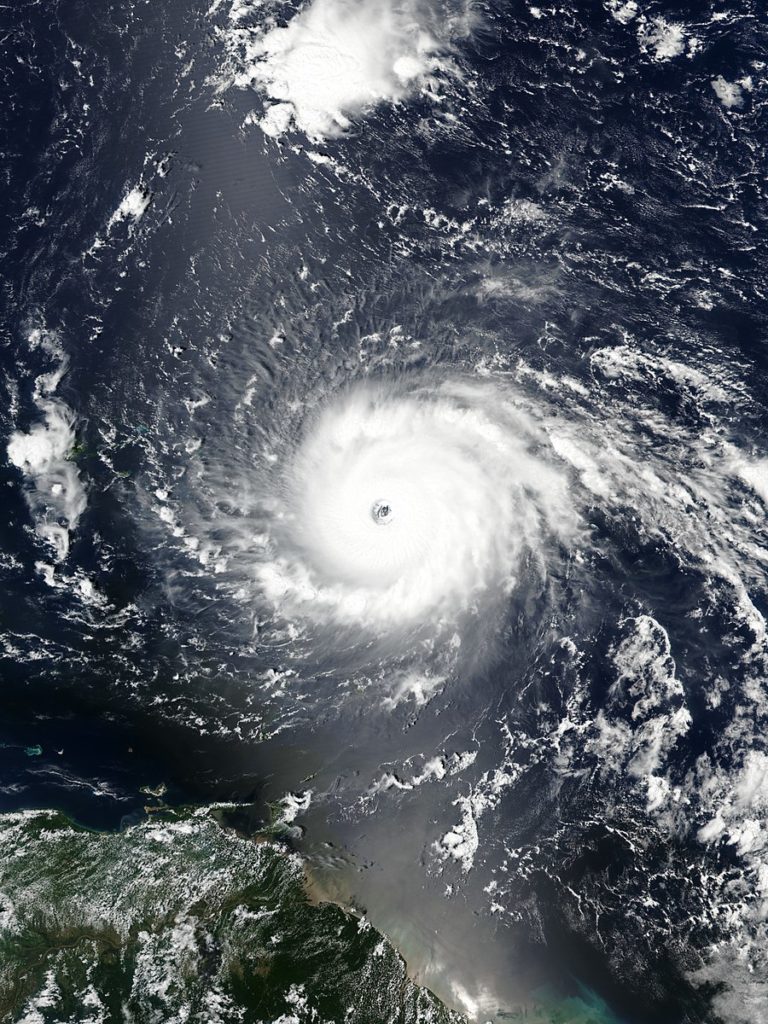The storm’s large wind field resulted in strong winds across much of Florida, except for the western Panhandle. The highest reported sustained wind speed was 112 mph (180 km/h) on Marco Island, while the strongest observed wind gust was 142 mph (229 km/h), recorded near Naples,[168] though wind gusts of 150 to 160 mph (240 to 260 km/h) likely occurred in the Middle Florida Keys.[169] More than 7.7 million homes and businesses in Florida were left without electricity at some point – approximately 73% of state.[170][171] Generally heavy amounts of rainfall were recorded to the east of the Irma’s path, including a peak total of 21.66 in (550 mm) in Fort Pierce.[172] Heavy precipitation – and storm surge, in some instances – overflowed at least 32 rivers and creeks, causing significant flooding, particularly along the St. Johns River and its tributaries.[47] Many homes and businesses suffered damage or destruction, with more than 65,000 structures damaged to some degree in West Central and Southwest Florida alone.[50] Agriculture experienced about $2.5 billion in damage.[47] It was estimated that the cyclone caused at least $50 billion in damage, making Irma the costliest hurricane in Florida history, surpassing Hurricane Andrew.[173]
Highest wind speed: 180 mph
Total fatalities: 134
Category: Category 4 Hurricane (SSHWS)
Date: August 30, 2017 – September 14, 2017
Damage: $77.6 billion
Affected areas: Eastern United States (especially Florida) and more…

Copyright © 2025 Generator Supercenter of Orlando